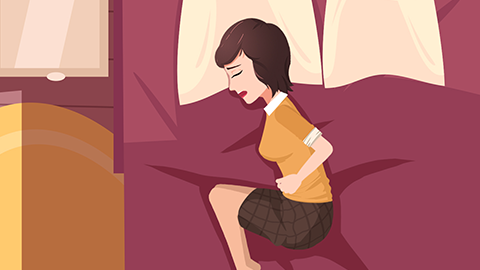How to relieve dysmenorrhea pain most quickly and effectively
Generally, there is no such thing as the "fastest and most effective way to relieve dysmenorrhea pain." Dysmenorrhea may be caused by various factors including psychological factors, increased nerve sensitivity, endometriosis, pelvic inflammatory disease, adenomyosis, and others. Depending on the specific situation, general treatments or medication may be used to manage or alleviate symptoms. It is recommended to seek timely medical consultation to identify the underlying cause and receive appropriate treatment under a doctor's guidance. Detailed explanations are as follows:

1. Psychological factors: Emotional stress, anxiety, and other psychological factors may increase uterine contractions and worsen dysmenorrhea symptoms. These may be accompanied by mood swings, insomnia, and other symptoms. Psychological therapy and relaxation training may help relieve mental stress and anxiety.
2. Increased nerve sensitivity: Some women experience heightened sensitivity to pain in the uterus and pelvic nerves during menstruation, so even mild uterine contractions may trigger severe pain. Relaxation techniques, deep breathing, and similar methods may help reduce nervous system sensitivity and alleviate dysmenorrhea symptoms.
3. Endometriosis: Endometrial tissue growing outside the uterus, such as on the ovaries, fallopian tubes, or peritoneum, can cause pain and may be accompanied by menstrual irregularities, infertility, and other symptoms. Patients may take medications such as gestrinone capsules, norethisterone tablets, or dydrogesterone tablets under a doctor's guidance.
4. Pelvic inflammatory disease: This may be related to poor sexual practices, infections, and other factors. The inflammatory response can cause local tissue swelling and increased exudate, leading to dysmenorrhea, which may be accompanied by lower abdominal pain, fever, and other symptoms. Patients may take medications such as Fuyankang capsules, Gongxuening capsules, or Gynecological Qianjin tablets as directed by a physician.
5. Adenomyosis: Adenomyosis is a benign condition characterized by the proliferation of uterine smooth muscle tissue, which may also cause dysmenorrhea and may be accompanied by heavy menstrual bleeding and prolonged menstruation. Patients may take medications such as danazol capsules, ibuprofen sustained-release capsules, or combined norethisterone tablets as recommended by a doctor.
Maintaining good lifestyle habits, paying attention to rest and dietary adjustments, can help alleviate dysmenorrhea symptoms.







